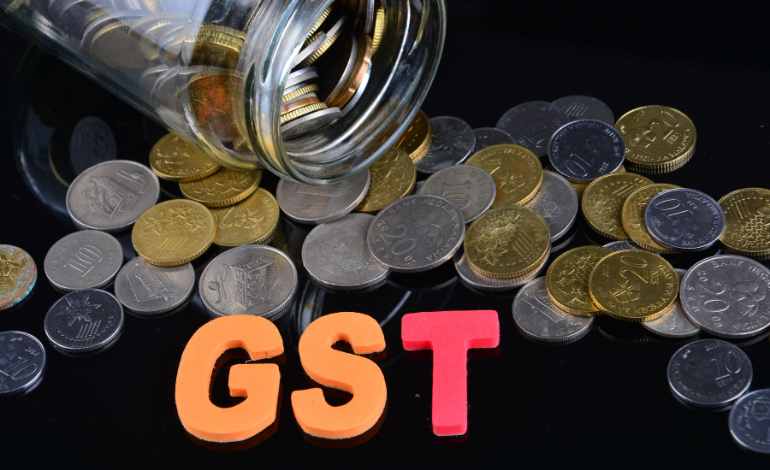
GST Registration Process in Chennai
In Chennai, the Goods and Services Tax (GST) registration process plays a crucial role for businesses operating within the city. GST is a comprehensive indirect tax levied on the supply of goods and services throughout India. The registration process is essential for businesses to comply with GST regulations and ensure smooth operations. This article provides a step-by-step guide to the GST registration process in Chennai, highlighting the requirements, documents, and procedures involved.
GST Registration Process in Chennai
What is GST registration?
GST registration is the process by which businesses obtain a unique Goods and Services Tax Identification Number (GSTIN) from the government. It is mandatory for businesses with a certain turnover to register under GST.
Why is GST registration important?
GST registration is crucial as it enables businesses to collect GST from customers and claim input tax credits on purchases. It also ensures compliance with the GST law and avoids penalties or legal consequences.
Eligibility for GST Registration in Chennai
Threshold limits for registration
In Chennai, businesses are required to register under GST if their annual turnover exceeds specific threshold limits. For regular taxpayers, the threshold limit is INR 40 lakhs for the supply of goods and INR 20 lakhs for the supply of services.
Mandatory registration criteria
Apart from the threshold limits, certain categories of businesses are mandatorily required to register under GST, irrespective of their turnover. This includes businesses engaged in inter-state supply, e-commerce operators, and those liable to pay tax under the reverse charge mechanism.
Documents Required for GST Registration
List of documents needed
To complete the GST registration process in Chennai, businesses must gather and submit the following documents:
- Proof of constitution (PAN, partnership deed, certificate of incorporation, etc.)
- Identity and address proofs of promoters/partners/directors
- Photographs of promoters/partners/directors
- Bank account details
- Proof of principal place of business (rent agreement, electricity bill, etc.)
- Additional documents based on business type (such as partnership deed, society registration certificate, etc.)
Document preparation tips
It is advisable to keep scanned copies of the required documents in the prescribed format before starting the registration process. Ensure that the documents are clear, legible, and match the information provided during registration.
GST Registration Process in Chennai
Online registration procedure
The online GST registration process in Chennai can be carried out through the GST portal (www.gst.gov.in). Follow these steps:
- Visit the GST portal and click on “Services” > “Registration” > “New Registration.”
- Fill in Part A of the application with the required details and submit.
- After submission, you will receive a temporary reference number (TRN).
- Proceed to fill Part B of the application with the TRN and submit the necessary documents.
- The application will be verified, and upon successful verification, you will receive the GSTIN and registration certificate.
Offline registration procedure
In certain cases, offline registration may be necessary. To proceed with offline registration:
- Visit the nearest GST Seva Kendra or GST Taxpayer Facilitation Center in Chennai.
- Submit the required documents along with the completed GST REG-01 form.
- The officer will verify the documents and process the registration.
- Upon approval, you will receive the GSTIN and registration certificate.
GST Registration Fees and Timelines
Fee structure for registration
The GST registration process in Chennai involves a nominal fee for certain businesses. The fee structure is as follows:
- For businesses with an annual turnover below INR 1.5 crores: INR 2,500
- For businesses with an annual turnover above INR 1.5 crores: INR 5,000
Timeframe for registration approval
The GST registration process typically takes around 7-10 working days. However, the timeframe may vary depending on the accuracy of the application, documents submitted, and verification process.
GST Compliance and Record Keeping
Maintaining records and invoices
Once registered under GST, businesses must maintain proper records of all transactions, including invoices, bills of supply, and other relevant documents. This is essential for accurate filing of GST returns and compliance with the law.
Registered businesses are required to file regular GST returns based on their turnover. The returns must be filed on time to avoid penalties or legal consequences. The frequency of filing varies based on the turnover and nature of the business.
Benefits of GST Registration in Chennai
- Access to input tax credits: GST registration enables businesses to claim input tax credits on purchases made for business purposes. This helps in reducing the overall tax liability and enhances profitability.
- Enhanced business credibility: Having a valid GST registration certificate enhances the credibility of a business in the eyes of customers, suppliers, and financial institutions. It establishes transparency and compliance with tax laws.
Conclusion
The GST registration in Chennai is a crucial step for businesses to comply with the GST law and ensure seamless operations. By understanding the eligibility criteria, preparing the necessary documents, and following the prescribed procedures, businesses can successfully register under GST and avail the benefits it offers. Proper record keeping, timely filing of returns, and adherence to compliance requirements will contribute to the smooth functioning and growth of businesses in Chennai.










